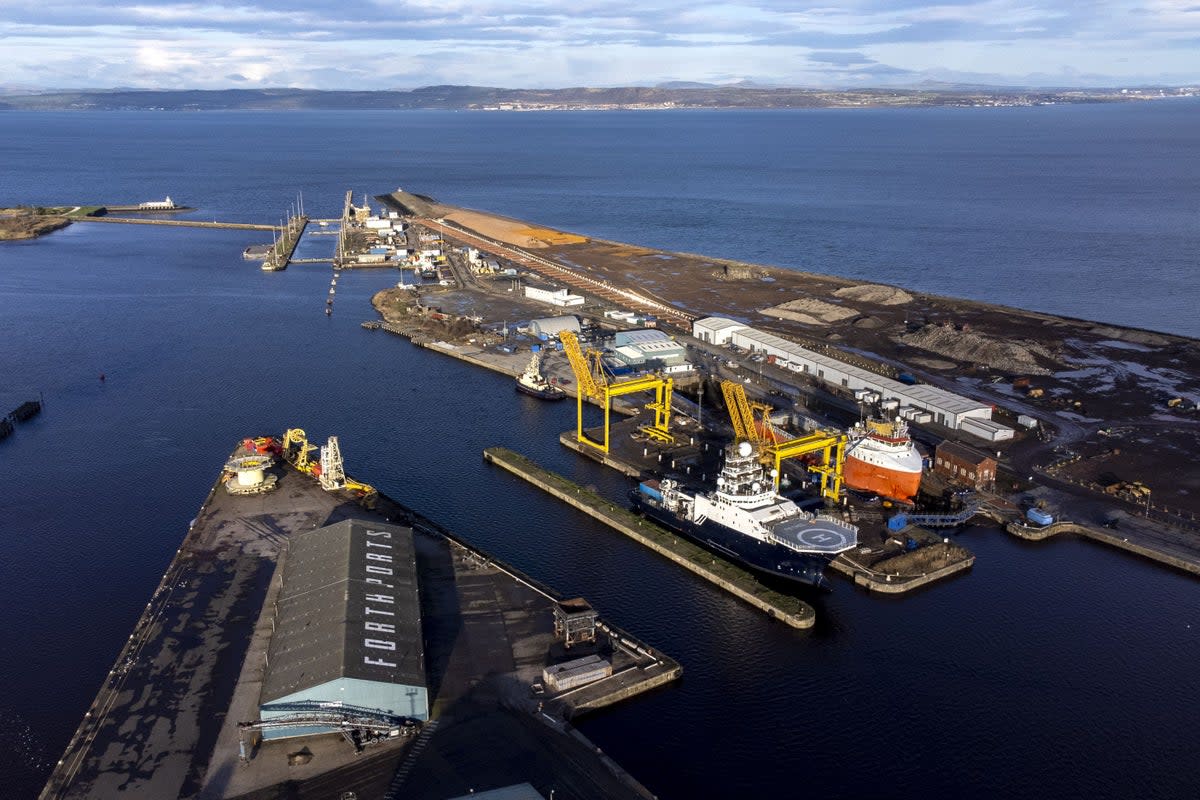What are freeports and why are they controversial?

Welsh freeports are to be hosted in the Port of Holyhead on Anglesey and jointly in the ports of Milford Haven and Port Talbot, whose bid was submitted under the name the Celtic Freeport.
They were chosen to access renewable energy opportunities and are expected to contribute to the UK’s net-zero ambitions.
Eight freeports have already been set up in England and two will soon open in Scotland.
What are freeports?
Freeports aim to create economic activity – such as trade, investment and jobs – near ports and airports. They allow goods to be brought in with less red tape, and new products made with those goods can then be exported with lower export charges.
Manufacturers in freeports can import raw materials tariff-free – paying tariffs only on finished products leaving the site for elsewhere in the UK.
Companies inside the sites are also able to claim lower property taxes, such as on new buildings they buy.
And firms benefit from lower rates of national insurance if they take on new staff.
Where are the UK’s freeports?
Freeports became one of the big post-Brexit policies of the Boris Johnson government and several freeport locations were announced by Rishi Sunak last year when he was chancellor.
Teesside became the first to enter operation in November 2021.
Others in England are the Thames freeport in Essex; sites near Liverpool; Plymouth and Hull; shared freeports for Felixstowe and Harwich and Southampton and Portsmouth; and one near East Midlands Airport.
In Scotland, Cromarty Firth and the Forth were chosen from five areas that applied for freeport status.
Northern Ireland’s government said it is working with the Treasury to identify whether the freeport model can be adopted under its post-Brexit arrangements.
In a think tank report in 2016 when he was a new backbencher, Mr Sunak wrote: “Brexit will provide the UK with new economic freedom, and the government should take the opportunity to create freeports across the nation.”
When did freeports begin?
Seven freeports operated at different points from 1984 to 2012 but were discontinued. They began under Margaret Thatcher’s tenure as prime minister to combat de-industrialisation and a declining economy.
Why are they controversial?
It is thought that freeports can attract investment to the areas that need it most, however, this view has previously sparked a backlash as critics argue they do not help the economy overall.
The Office for Budgetary Responsibility has predicted tax breaks in England's freeports will cost the UK government £52 million a year.
A Government spokesperson said: “Up to £52 million is being invested by the UK Government to create the new Freeports at Inverness and Cromarty Firth and Firth of Forth, bringing regeneration, attracting up to an estimated £10 billion in investment and creating around 75,000 new, high-skilled jobs.”
What is the connection to Brexit?
In 2020, then Chancellor of Exchequer Rishi Sunak said of freeports: “They will attract investment from around the world as we embrace new opportunities following our departure from the EU and will be a key driver for economic recovery as we build back better post coronavirus.
However, in extreme circumstances, the EU could respond to UK subsidies by introducing tariffs on some UK goods deemed to be damaging EU trade or investment. This could still happen despite the fact that no agreement is required from European Commissions where tax break are offered to freeport firms.

 Yahoo Lifestyle
Yahoo Lifestyle 
